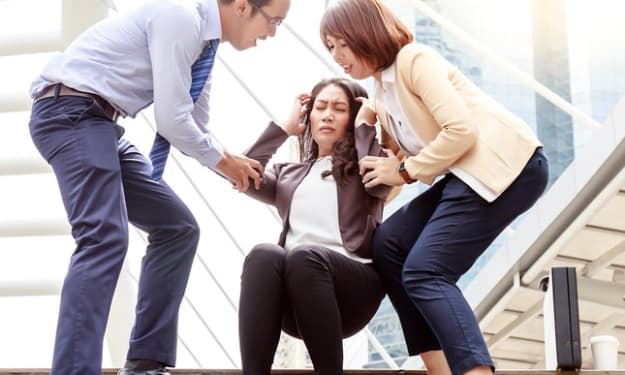Top 10 Essential Medical Supplies Every Home Must Have for Emergencies
Be Ready for Anything: The Must-Have Medical Supplies for Every Home Emergency Kit

Emergencies are unpredictable, and being prepared can make a significant difference in handling unexpected situations effectively. Having a well-stocked supply of medical essentials at home can be a lifesaver during emergencies. Here’s a comprehensive guide on the top 10 essential medical supplies every home must have for emergencies.
1. First Aid Kit
A first aid kit is a fundamental component of any home’s emergency preparedness. It should include a variety of items such as adhesive bandages, sterile gauze pads, adhesive tape, antiseptic wipes, tweezers, scissors, and a digital thermometer. Additionally, consider adding a first aid manual to guide you through basic medical procedures.
2. Over-the-Counter Pain Relievers
Pain relievers like acetaminophen (Tylenol), ibuprofen (Advil, Motrin), and aspirin are crucial for managing pain, reducing fever, and addressing inflammation. These medications can provide relief from headaches, muscle aches, toothaches, and minor injuries. Ensure you store these medicines in a cool, dry place and check expiration dates regularly.
3. Antiseptics and Disinfectants
Infections can escalate quickly, so having antiseptics and disinfectants on hand is vital. Hydrogen peroxide, isopropyl alcohol, and iodine are effective for cleaning wounds and preventing infections. Antibacterial ointments, such as Neosporin, can also be used to protect minor cuts, scrapes, and burns from bacteria.
4. Prescription Medications
If anyone in your household requires prescription medications, ensure you have an adequate supply, especially for those with chronic conditions. Store these medications in a secure place and keep a list of them, including dosages and the prescribing doctor’s contact information, in your first aid kit. Additionally, consider having a small emergency supply for unexpected situations.
5. Medical Instruments
Basic medical instruments like a digital thermometer, blood pressure monitor, and a pulse oximeter are indispensable. A thermometer helps monitor fever, a common symptom of many illnesses. A blood pressure monitor is crucial for individuals with hypertension or heart conditions, while a pulse oximeter measures oxygen levels in the blood, which is particularly useful during respiratory illnesses.
6. Bandages and Dressings
A variety of bandages and dressings are necessary to address different types of wounds. Adhesive bandages of various sizes, sterile gauze pads, elastic bandages, and adhesive tape are essential for treating cuts, scrapes, sprains, and strains. Having an assortment ensures that you can properly care for minor injuries and prevent infections.
7. Cold and Hot Packs
Cold packs and hot packs are effective for managing pain and swelling. Cold packs reduce inflammation and numb pain, making them ideal for acute injuries like sprains and strains. Hot packs, on the other hand, relax muscles and improve blood flow, which can alleviate chronic pain conditions such as arthritis or muscle spasms. Reusable packs are environmentally friendly and cost-effective.
8. Antihistamines
Allergic reactions can range from mild to severe, and having antihistamines on hand can provide quick relief. Medications like diphenhydramine (Benadryl) or loratadine (Claritin) can alleviate symptoms such as itching, swelling, and hives. For households with known severe allergies, keeping an epinephrine auto-injector (EpiPen) is crucial for emergency situations.
9. Splints and Immobilizers
Accidents that cause fractures or severe sprains may require immobilization before professional medical help can be reached. Having a basic splint kit, which includes items like padded aluminum splints and cohesive bandages, can help stabilize the injured area and prevent further damage. Knowing how to use these tools is equally important, so consider learning basic splinting techniques.
10. Emergency Contact Information
While not a physical supply, having a readily accessible list of emergency contact information is invaluable. This list should include phone numbers for local emergency services, poison control, family doctors, and nearby hospitals. Additionally, ensure that all household members are familiar with this information and know where to find it in an emergency.
Final Words
Preparedness is key to effectively handling emergencies, and having these ten essential medical supplies can make a significant difference in your ability to respond promptly and effectively. Regularly check your supplies to ensure everything is in good condition and replace items as needed. By taking these steps, you can create a safer environment for yourself and your loved ones, ready to tackle unexpected medical situations with confidence and care.
Click Here to Know More!
About the Creator
Enjoyed the story? Support the Creator.
Subscribe for free to receive all their stories in your feed. You could also pledge your support or give them a one-off tip, letting them know you appreciate their work.






Comments
There are no comments for this story
Be the first to respond and start the conversation.